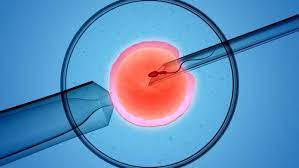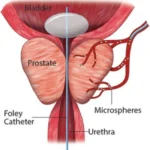Infertility specialists are medical doctors with specialized training in the reproductive system, and they diagnose and treat various issues related to fertility. While your OB-GYN manages general reproductive health, an infertility specialist focuses on the complex processes involved in conception, which is why they oversee treatments like in vitro fertilization (IVF). Their expertise guides patients through the detailed steps of the IVF journey. Here is how they might increase IVF odds of success:
Identify Issues
A thorough evaluation by a specialist is a key step in the IVF process. The specialist will conduct a series of tests to pinpoint any underlying factors contributing to infertility, and this initial workup provides a clear picture of your reproductive health. Because every patient’s situation is unique, this detailed diagnostic phase allows for a tailored treatment approach. Here are some potential factors that can affect fertility:
- Ovulation disorders: Irregular or absent ovulation can prevent the release of eggs necessary for conception.
- Tube factors: Blocked or damaged fallopian tubes can hinder the egg and sperm from meeting.
- Endometriosis: This condition can affect egg quality and interfere with the reproductive organs.
- Male factor infertility: Low sperm count, poor motility, or abnormal sperm shape can reduce the chances of fertilization.
- Age issues: Declining egg quantity and quality with age can impact fertility outcomes.
Rebalance Hormones
Hormones impact the entire reproductive process. When a specialist identifies a hormonal imbalance through testing, they will develop a plan to address it. Regulating these hormones is a key part of preparing the body for IVF, so the specialist monitors levels closely. This attention to detail helps create a more favorable environment for the treatment cycle.
Customize Medications
Medications are a cornerstone of the IVF process, and an infertility specialist can tailor protocols to each individual’s needs. A specialist prescribes specific drugs to stimulate the ovaries to produce multiple eggs. The type and dosage of these medications are adjusted based on how your body responds, which is monitored through regular blood tests and ultrasounds.
This personalized approach continues throughout the cycle. Since each person metabolizes medication differently, the specialist fine-tunes the protocol to support optimal follicle development. They make precise adjustments to the treatment plan as the cycle progresses, and they monitor the effects closely.
The goal is to retrieve a suitable number of mature eggs for fertilization. A customized medication strategy is designed to align with your body’s unique hormonal profile and response patterns, taking into account your hormonal fluctuations and individual response behaviors. The specialist uses their expertise to manage this delicate balance, which plays a part in the subsequent stages of IVF.
Synchronize Menstrual Cycles
When a gestational carrier or donor eggs are part of the treatment plan, cycle synchronization becomes necessary. This process involves coordinating the menstrual cycles of two individuals using hormonal medications. The specialist manages the timing so that the uterine lining is ready for embryo implantation at the precise moment the embryo is available. Proper synchronization is a logistical and medical coordination, and it is managed by the medical team.
Visit an Infertility Specialist
An infertility specialist brings a focused skill set to manage the complexities of the process, from initial diagnosis to the final stages of treatment. They work to identify specific issues, manage hormonal levels, create personalized medication plans, and coordinate cycles when needed. Their guidance provides a structured framework for your treatment. If you are exploring IVF, schedule a consultation with a specialist.



